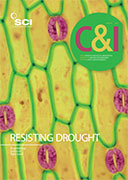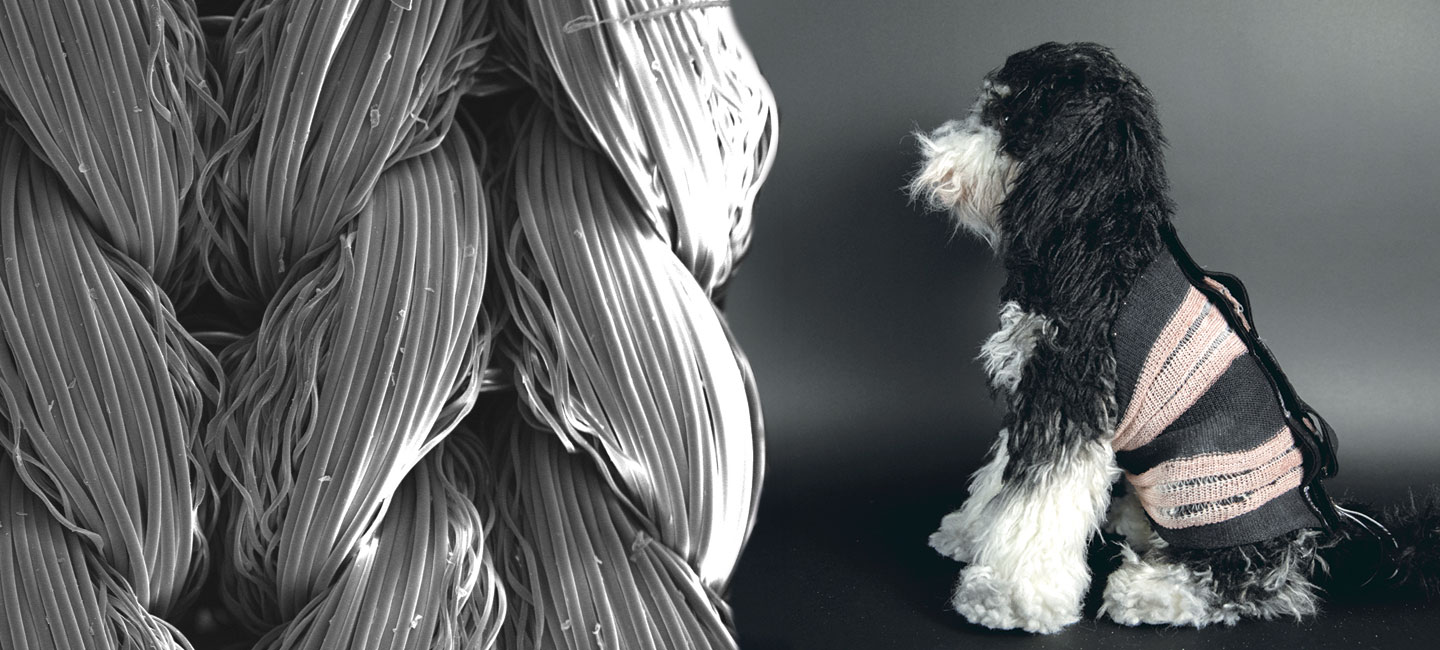|
€105bn
|
|
$5m
|
|
£3.5m
|
|
€81m
|
|
3 minutes
|
Swiss-based biopharmaceuticals AC Immune and Chinese biopharmaceuticals Essex Bio-Technology have entered into a research collaboration for the pre-clinical and clinical co-development of a biological therapeutic for treating neurodegenerative diseases, such as Alzheimer’s disease, and neuroinflammation.
US-based Microtek Laboratories, which provides microencapsulation technologies, has signed a contract with BASF for its Micronal brand and product line, as well as a world-wide exclusive license for manufacturing Micronal microencapsulated phase change materials (PCMs). These materials are used for thermal regulation in building and construction, mattresses and pillows, textiles, electronics, and packaging applications. BASF will focus on its core business of raw materials used in construction chemicals.
Portugal-based FairJourney Biologics, a leading antibody discovery, engineering and production CRO, has patented a technology to discover antibody molecules in full therapeutic format. The Triple Vector technology enables the selection of immunological effector function bearing bivalent molecules by phage display as well as the production of such molecules in bacteria and mammalian systems without the need of a cloning step, consequently accelerating the drug discovery process.
Swiss speciality chemicals firm Clariant and US speciality chemicals Huntsman are to combine in a merger of equals, with the transaction targeted to close by year end 2017. The new company, HuntsmanClariant, is expected to create a global specialty chemical company with sales of approximately $13.2bn, an adjusted EBITDA of $2.3bn, and a combined current enterprise value of approximately $20bn. The combined company, incorporated in Switzerland, will be governed by a board of directors with equal representation from Clariant and Huntsman. In addition, Clariant has announced it is to invest in two new additives’ facilities in its Zhenjiang in China. The two production units, which are expected to come onstream in 2018, will focus on offering additives for packaging, agro-films, and automotive applications, and micronised waxes for various coatings and inks applications.
Merck, in collaboration with Stelis Biopharma, has opened its first joint process scale-up lab in Bengaluru, India. The facility will provide customers with end-to-end solutions, from R&D through to commercial scale-up, accelerating development of biologics for clinical trials and manufacturing.
Building on its commitment to producing antibiotics sustainably in the fight against antimicrobial resistance, DSM Sinochem Pharmaceuticals (DSP) has announced the expansion of its manufacturing facility in Delft, the Netherlands. There is a growing demand for sustainably produced 7-ADCA, the key intermediate for cephalosporin APIs. DSP expects the new extension to be fully operational in the last quarter of 2017.
The Drug Discovery Unit at the University of Dundee in Scotland and Montreal-based biotechnology company Corbin Therapeutics have announced a collaboration agreement to screen and identify small molecules capable of efficiently inhibiting the ubiquitin-specific protease, USP15. This protease is central in the neuro-inflammation pathology and its inhibition is thought to be key in preventing and treating inflammatory-based diseases, such as multiple sclerosis.
Multinational Honeywell UOP has signed a partnership agreement with China’s Wison Engineering to provide methanol-to-olefin (MTO) technologies and engineering, procurement and construction (EPC) services to customers outside of China. In addition, Honeywell technology and controls has been selected by Zhejiang Petrochemical to supply high-purity hydrogen for its new integrated refining and petrochemical complex in Zhoushan, Zhejiang Province; and Ningbo Fortune Petrochemical and Zhangjiagang Yangzi River Petrochemical, both subsidiaries of Oriental Energy, are each producing 600,000mt annually of on-purpose propylene from propane using Honeywell’s process technology. Honeywell UOP will open a new research, development and engineering centre in China to further strengthen its business presence and meet its growing engineering and technical service needs. The new centre is expected to facilitate local development and manufacturing of products for customers in China and improve collaboration with China-based contractors and equipment vendors.
Graphene-infused paints are now available in the UK from London-based The Graphene Company, the exclusive distributor of the Graphenstone range of paints and materials. Graphene’s inclusion in paints, coatings and other building materials is reported to enhance hardness, durability, compression, tensile strength, elasticity and coverage. It reduces the weight of materials and delivers significant savings in materials consumption, maintenance, manpower and costs.
Teeside UK-based Applied Graphene Materials (AGM) has developed Structural Ink, a patented technology targeted at the composites industry. Structural Ink will print graphene directly onto composites, and has been developed by AGM in partnership with the National Aerospace Technology Exploitation Programme (NATEP). The NATEP is a £40m technology development programme derived from a bid by the Aerospace Growth Partnership to the UK government’s Advanced Manufacturing Supply Chain Initiative.
German headquartered Henkel has signed an agreement to acquire Sonderhoff Holding based in Cologne, Germany. Sonderhoff’s portfolio includes specialised polyurethane and silicone foams as well as customised dosing equipment and automation technologies. With the acquisition, Henkel will further enhance its sealants competence for a variety of industrial applications.
Yidu Xingfa Chemical has awarded DuPont Clean Technologies contracts for the engineering and technology license for a 3600mt/day sulfuric acid plant. This project will make the Xingfa sulfuric acid plant one of the largest in China.
The International Tin Industry Organisation (ITRI), headquartered in Hertfordshire, UK, has launched a Responsible Tin Supply Group aimed at achieving a responsible and more coordinated supply chain for tin. The group will bring together stakeholders from all tiers of the supply chain, including tin traders and users from the solders, tinplate and tin chemicals industries and those companies further downstream.
MilliporeSigma, the life science business of Merck, which operates in the US and Canada, has acquired Grzybowski Scientific Inventions (GSI), a company that developed the computer-aided retro-synthesis tool, Chematica. This software uses advanced reaction rules and proprietary algorithms to identify synthesis pathways that meet user-defined constraints, and lead to increased productivity.
The environmental NGO ChemSec has developed a website, the Marketplace, aimed at companies looking to raise the visibility of alternatives to hazardous chemicals. Chemical producers, including Clariant, Chemours and Valspar, have already committed to working with the NGO in this capacity.
Novartis has entered a clinical research collaboration with Bristol-Myers Squibb (BMS) to evaluate potential treatments in metastatic colorectal cancer. Under the terms of the agreement, the study will be conducted by BMS and is expected to establish recommended dose regimens and the preliminary anti-tumour activity of the combination therapies – Mekinist (trametinib) in combination with Opdivo (nivolumab)and Opdivo + Yervoy (ipilimumab). Both companies will evaluate the results to determine optimal approaches and potential clinical development of these combinations.
Biopharmaceutical firm, Pharnext has signed a strategic agreement with China’s Tasly Pharmaceutical. As part of the agreement, Tasly will invest €20m in Pharnext; an R&D Joint-Venture (JV), owned 30% by Pharnext, will be established to develop of a new pipeline of synergistic combinations; and a licensing agreement for the development and commercialisation of Pharnext's lead product for the Chinese market.
French materials manufacturer Saint-Gobain has acquired Biolink, a German manufacturer of specialty adhesive tapes. Based in Waakirchen, Biolink develops and produces solvent-free acrylic resin adhesive tapes for a variety of applications in the aeronautic, automotive and other industrial markets, mostly in Europe.
Shell has announced it is making good progress on the main construction of its fourth linear alpha olefins (AO) unit at its chemicals manufacturing site in Geismar, Louisiana, US. The 425,000t/yr capacity increase will make Shell’s site the largest AO producer in the world. In addition, the company has decided to expand its mid-cut and light-cut alcohol capacity. Shell plans to start commercial production of incremental alcohols on the same timing as the new AO unit.
Belgian chemicals major, Solvay has completed the divestment of its cellulose acetate tow business, Acetow, to private equity funds managed by investment firm Blackstone. The transaction is based on an enterprise value of around €1bn, resulting in net financial debt reduction of some € 0.7bn. Acetow, headquartered in Germany, is a global producer of cellulose acetate tow mainly used in cigarette filters, and has production sites in Germany, France, Russia, the US and Brazil.
US laboratory equipment company, Thermo Fisher Scientific has put in an offer to acquire pharmaceutical CDMO Patheon for $35.00/share in cash. The transaction represents a purchase price of approximately $7.2bn, which includes the assumption of approximately $2.0bn of net debt. Patheon is expected to become part of Thermo Fisher's laboratory products and services segment. In the meantime, Patheon has completed its expansion project at its Greenville, North Carolina, US, manufacturing site. The company has invested $26m to update one of its sterile pharmaceutical development services (PDS) suites and to build a state-of-the-art, fully integrated sterile PDS suite which are compliant with regulatory authorities.
Publisher, John Wiley and Sons and CAS, a division of the American Chemical Society, are collaborating to deliver advanced predictive synthesis to researchers worldwide. Wiley’s ChemPlanner technology will take advantage of additional information from CAS, such as reaction content and associated references, including reactions from patents. New features for ChemPlanner will include stereoselective retrosynthetic prediction and customisable relevance ranking, which will be delivered in CAS’ SciFinder.
|
Germany’s Henkel has partnered with auto manufacturer, Fiat Chrysler, in a holistic approach to save weight and improve process and material performance of Alfa Romeo’s Giulia saloon. The car has a body that is 90kg lighter than a conventional all-steel body, through the use of aluminium, which accounts for 45% of the weight, requiring a two-step Bonderite metal pretreatment process suitable for multi-metal car bodies. For noise reduction, Henkel also supplied Teroson high expansion fillers, which are foamable elastomer mouldings that are inserted during assembly and expand during the e-coat process to completely fill cavities. Teroson AL7154, a liquid spray-applied acrylic waterborne sound deadener, replaces conventional bitumen pads to reduce weight and noise in the passenger compartment. A further Teroson product, an external and interior PVC plastisol sealer PV3414 applied robotically, also replaces the usual two different sealers that are manually applied. Functional cooling textiles used for core sports and occupational safety brands have used BASF’s superabsorbent nonwoven Liquafleece, which can be ‘activated’ by ‘charging ‘ with water. Water enters the active layer after being absorbed and distributed through a bacteriostatic textile fabric. The fibres of the nonwoven layer are coated with superabsorbent polymers trap increasing numbers of water molecules until elastic restoring forces compensate for the osmotic forces of the prevailing concentration gradient. Liquafleece can absorb ten times its weight in water, retaining it firmly so that the functional textiles remain dry on the surface. Thermal energy is absorbed by the water, which evaporates thereby cooling the wearer. This functional technology is said to increase athletic performance by up to 10%, while the direction of cooling can last up to 20hrs. |


 The world’s first liquid nitrogen/diesel hybrid bus, CE Power, built by an Innovate UK consortium at Horiba Mira, has successfully completed trials at Horiba Mira’s proving ground in Nuneaton. The bus uses a multi-cylinder high-efficiency, zero emission Dearman engine which uses nitrogen, stored in a low-pressure insulated cylinder and then warmed up to boiling point to create sufficient pressure, to provide the driving power in acceleration and at speeds below 20mph. The use of the Dearman engine enable the bus to stop frequently and pull away, the portion of a conventional diesel-powered bus’ drive cycle that creates the most emissions.
The world’s first liquid nitrogen/diesel hybrid bus, CE Power, built by an Innovate UK consortium at Horiba Mira, has successfully completed trials at Horiba Mira’s proving ground in Nuneaton. The bus uses a multi-cylinder high-efficiency, zero emission Dearman engine which uses nitrogen, stored in a low-pressure insulated cylinder and then warmed up to boiling point to create sufficient pressure, to provide the driving power in acceleration and at speeds below 20mph. The use of the Dearman engine enable the bus to stop frequently and pull away, the portion of a conventional diesel-powered bus’ drive cycle that creates the most emissions.

